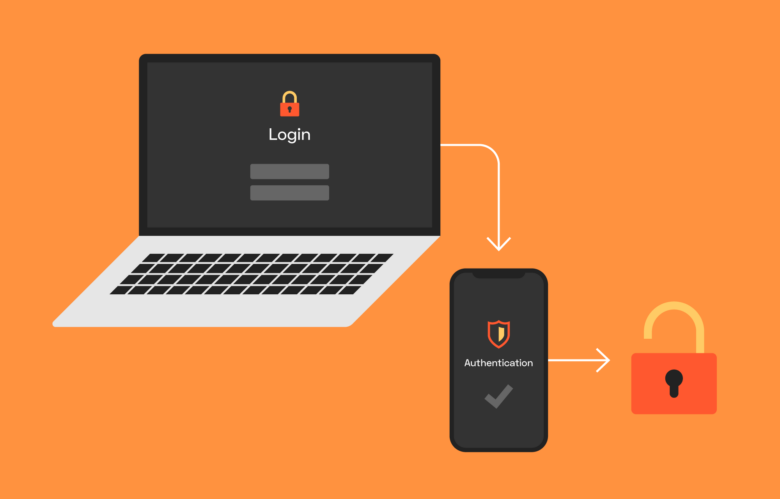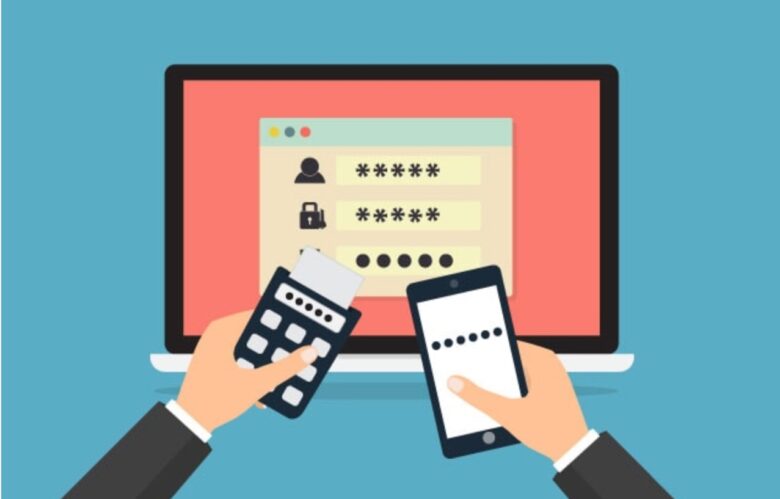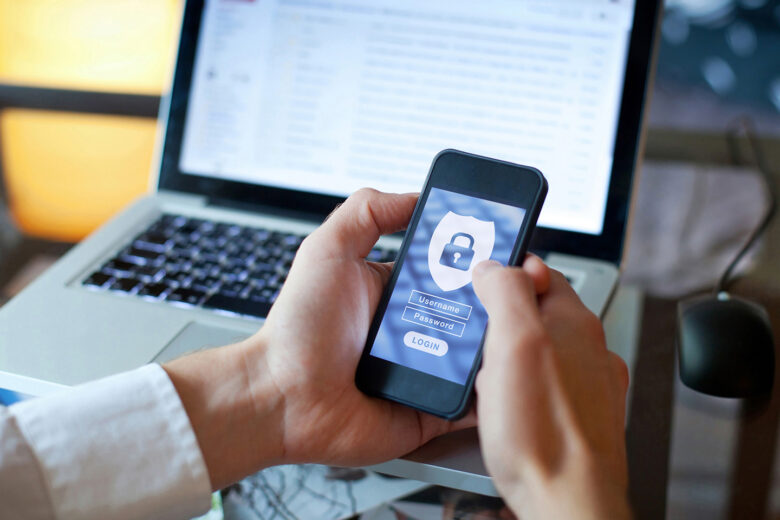Two-factor authentication or simply 2FA is an extra layer of security that requires two forms of identification in order to access information and services. After entering their password on a virtual platform, for example, a person might receive a one-time PIN or code to verify their identity.
So, what are the pros and cons of two-factor authentication, and which industries are gaining the most from it?

Source: sciatwork.com
Contents
The benefits of two-factor authentication
In 2022, more than 422 million individuals were affected by corporate data breaches and online exposure. While 2FA isn’t a foolproof method for preventing a hacking attack, it does add an extra layer of security that requires more effort from cybercriminals to breach. 2FA also comes with network access limiting and multiple device monitoring. In other words, a user can limit the devices and/or networks that can access their accounts.
Not only is 2FA beneficial for customers, but also for companies as it can help to boost internal security and mobility. An employee working from home, for example, can access the company’s systems and databases by using a 2FA system to log in safely.
Having a 2FA system in place can also improve the company’s reliability. According to data by Forbes, about 46% of companies that suffer from data breaches experience serious damage to their reputation and brand value. Nowadays, consumers are more concerned about their digital privacy and security than ever before. Hence, consumers will be more inclined to trust a company that has implemented 2FA and other security measures with their sensitive data.
The downsides of two-factor authentication
Experts have argued that, despite the previously mentioned benefits, two-factor authentication might not provide as much security as one might believe. While superior to one-factor authentication, 2FA is still liable to hacking attacks even with an efficient system in place.
Another issue is that not all companies or institutions might implement their authentication method properly. Most companies limit themselves to enabling security questions on top of the password requirement, which isn’t enough to provide robust security. An effective system should be a combination of various factor types like a biometric, knowledge-based (recalling the last sign-in location), or a physical item.
However, not all companies are able to implement a strong two-factor or multi-factor authentication system as the operation involves some extra cost. Ongoing maintenance can prove costly too, particularly when a company lacks an effective way of managing a user database and several authentication methods.

Source: expressvpn.com
The industries using and benefiting from two-factor authentication
Tech companies like Microsoft, Google, Apple and Facebook have implemented 2FA. Google, for example, offers its users the option to verify their identities by receiving a code from a text message or call, using the Google Authenticator app, or enabling Google prompts with an Android phone. In addition to tech and internet companies, the following industries are making use of two-factor and multi-factor authentication.
E-commerce
E-commerce and online retailers such as Amazon have also implemented two-factor authentication. The industry, valued at 16.6 trillion USD in 2022, is especially vulnerable to scammers and fraudsters. In 2021, global e-commerce losses reached around 20 billion USD, which represented a 14% increase compared to the previous year. Compensating customers who have fallen victim to cybercrime can be incredibly costly for online retailers and businesses. Yet, 2FA authentication can minimise this risk.

Source: globalsign.com
Healthcare
With the digitalisation of most services, virtual healthcare platforms are becoming more and more common. Yet, sending and keeping healthcare records on a digital portal doesn’t come without its downsides as this type of data is also attractive to cybercriminals. After all, these records often contain both personal and financial data. In the U.S., for example, The Health Insurance Portability and Accountability Act (HIPAA) was created to protect people’s healthcare information. While HIPAA doesn’t mandate organisations to implement the 2FA system specifically, it does require strong measures to enforce password security. With 2FA, healthcare organisations can help to combat phishing attacks and other forms of fraud, and safeguard patients’ privacy and electronic records.
Law enforcement
Law enforcement agencies handle a significant volume of sensitive data on a daily basis, including criminal records, ongoing case records, and fingertips. Such data must be accessible by numerous people from both inside the department office and agents in the field. In order to access this information, law enforcement agencies required a 2FA system, also known as advanced authentication by security services like the FBI.

Source: recfaces.com
Finance
The finance sector has been using two-factor authentication for a while now. When someone uses an ATM machine, they need to present both a debit card and insert their four-digit PIN code in order to access their account. Nowadays, as financial services move online, an added layer of security must be provided to safeguard customers and their assets. Any entity that processes and stores payment information must also comply with Payment Card Industry Data Security Standard (PCI-DSS), which means that they ought to provide more than two authentication factors to guarantee security.
iGaming
Similarly to e-commerce, iGaming is a rapidly growing industry valued at 63.53 billion in 2022. Thanks to technological advancements, it’s possible to access numerous virtual casinos offering perks for players, such as the ones listed on sites like Australia Internet Pokies: https://www.australiainternetpokies.com/deposit-options/minimum-casinos/.
iGaming regulatory bodies recommend that online service providers enable 2FA for their end-users to protect their sensitive data. In the United States, The Division of Gaming Enforcement (DGE) obliges providers to have this kind of system in place.

Source: arkoselabs.com
To conclude
Two-factor authentication or 2FA allows individuals to prove they are who they claim to be presenting two different authentication factors. In an increasingly digitised world where passwords are the only barrier to protecting personal information from unauthorised access, this method has progressively become a necessity. While it isn’t a foolproof strategy, it does offer an additional layer of security and reduces the likelihood of falling victim to cybercrime. Tech companies, e-commerce businesses, healthcare portals, law enforcement agencies, banks, and iGaming platforms are embracing 2FA to safeguard sensitive data as well as protect their integrity and fortify the security of their systems.
